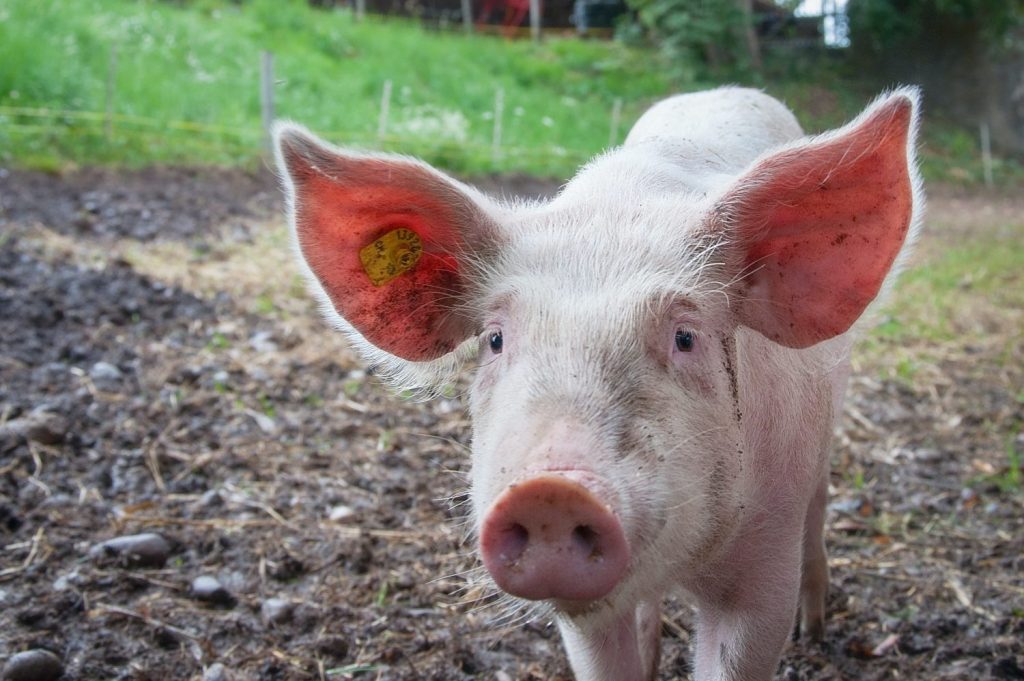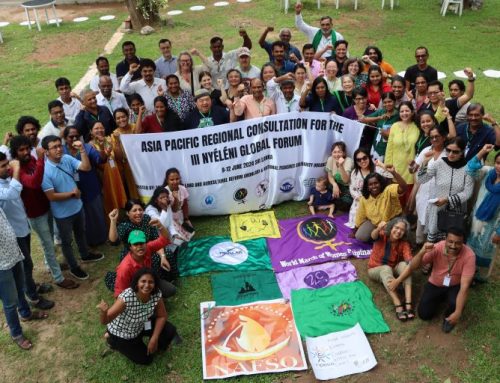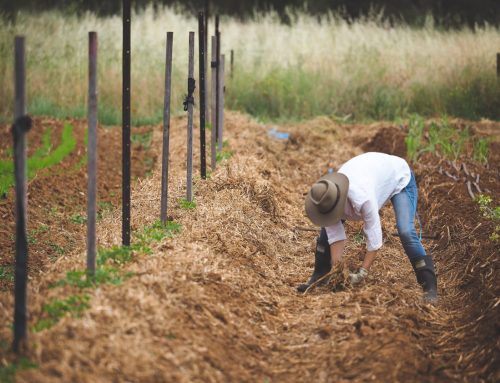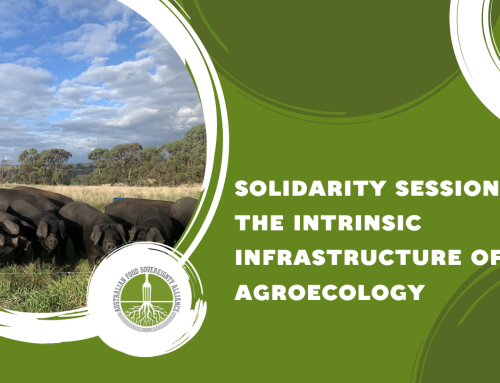The Australian Food Sovereignty Alliance (AFSA) flags climate change and intensive livestock as key causes of concern in the current outbreak of Japanese encephalitis virus (JEV) across four Australian states. AFSA is calling on the Australian Government and Industry to acknowledge the risks associated with industrial agriculture on climate, farmers, livestock and public health.
Some small-scale pastured pig farm members of AFSA have also been affected, and all should take precautions to protect their herds and local communities against infection from mosquitoes.
Current info on JEV outbreak in Australia (April 2022)
- JEV has been detected at 70 piggeries across Queensland, New South Wales, Victoria and South Australia
- Communicable Diseases Network Australia (CDNA) has established a JEV working group to provide public health advice, including vaccines, to impacted populations.
- Pig farmers and their families have been identified as a priority group for receiving the JEV vaccine.
- For pig famers wishing to receive a JEV vaccine, government advice is to contact your local public health authority or GP to access current and incoming supplies.
What is Japanese encephalitis virus (JEV)?
- Japanese encephalitis is a mosquito-borne viral disease that can cause reproductive losses and encephalitis in susceptible animal species. It is caused by Japanese encephalitis virus which is a member of the Flavivirus genus.
- It’s known to infect pigs, horses and humans. Waterfowl are also carriers of the virus. In pigs, symptoms include reproductive and fertility issues and deaths in young animals.
- Whilst the vast majority of humans who contract JEV will have no symptoms, in a small number of cases it can cause significant illness and death.
How do livestock and humans become infected with the virus?
- JEV is not transmitted through consumption of pork, nor is it directly contagious from pigs – it is transmitted to humans from mosquitoes who have bitten pigs.
- Previously, JEV has been a tropical disease endemic to parts of Asia, with occasional seasonal outbreaks as far south as the Torres Strait. It has never been detected south of Cairns before this year.
What is the status of the current JEV outbreak in Australia?
- JEV has now been detected in New South Wales, Victoria, South Australia, and Queensland. Distribution to the southern states is unprecedented and due to a changing climate that has led to two unseasonably warm and wet summers in the southeastern states. It has now been found in 40 piggeries (https://www.health.gov.au/health-alerts/japanese-encephalitis-virus-jev/about) .
- No. infected/sick/deaths:
- Victoria: in at least 6 piggeries, including at least one small-scale pastured pig farm. 7 people infected (from Ag Vic), and one person has died. (Source: Ag Vic)
- Queensland: in at least one piggery, in Goondiwindi. (Source: DPI)
- NSW: 5 locations in southern and western NSW, one person has died. (Source: NSW Health)
- SA: 4 people infected and one death (unconfirmed whether it was from JEV) (Source: SA Health)
- It’s a current concern that flood events in QLD and NSW could accelerate the spread of the virus.
- Despite the vast majority of outbreaks occurring in large-scale industrial piggeries, the industry’s response has been cavalier. The Director of Sunpork, owner of several of the QLD and NSW piggeries affected by outbreaks, was quoted in the Queensland Country Life as saying “The piggeries are innocent bystanders. Pigs are not going to infect other pigs. It’s not going to have a negative effect at an abattoir. The pork is safe to eat. It’s play on. If you’re going to have an emergency animal disease, this is the one to have. We’re not actually anticipating any significant disruption to our operations at all.”
- Advice provided by Australia Pork Limited (APL), the peak body for intensive piggeries, is almost exclusively relevant to piggeries with thousands of animals locked in sheds. It does not provide meaningful guidance for high-welfare, pasture-based systems.
Current APL Guidance regarding pig health
- Remove or reduce water lying around sheds and roads.
- Remove weeds and mow long grass.
- Spray or fog your sheds regularly with a handheld or commercial spray unit with approved insecticide – a list of approved insecticides will be provided soon.
- Disperse approved mosquito larvicides over water bodies close to sheds, that cannot be drained.
APL has communicated that it will be updating its advice on JEV regularly and can be accessed here. Although clearly, this advice is of limited assistance to AFSA members raising pigs in an agroecological setting.
AFSA advice to members
- Monitor your herd for health – JEV can cause stillbirth or delayed births in infected sows. Other symptoms include fever, pigs being off their feed, swollen testicles and neurological symptoms.
- Ensure that your pasture and herd movements minimise the risk of mosquito bites. Consider moving pigs out of low-lying areas, and regularly draining and refilling wallows and troughs. Eradicate any stagnant water sources around pig and human areas.
- Take precautions for your own personal safety, and the safety of others on your farm. This includes avoiding work at dawn and dusk, when mosquitoes are most active (where possible), wearing protective clothing including long sleeved shirts, long pants and mosquito veils.
- Biodiversity is your friend and the enemy of disease spread. The greater the diversity of species on your farm and the less intensive your animal production zones, the more immunological firebreaks you put up to help thwart the spread of JEV and other viruses.
- Have a plan for what you’ll do if your herd is affected. Consider your relationship with your vet, with government agencies, with your abattoirs and butchers and with your customers.
- Transparency, information sharing and community building are key in responding to challenges like JEV. Reach out to AFSA, to other farmers and your community for support.
AFSA has issued a statement to media on the current outbreak, which can be found here.






